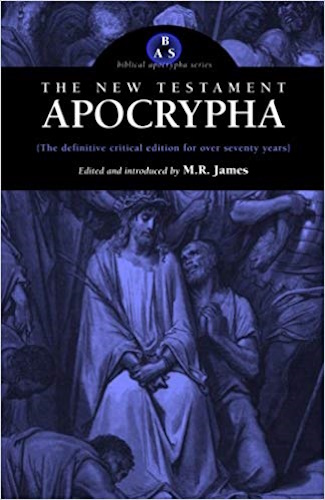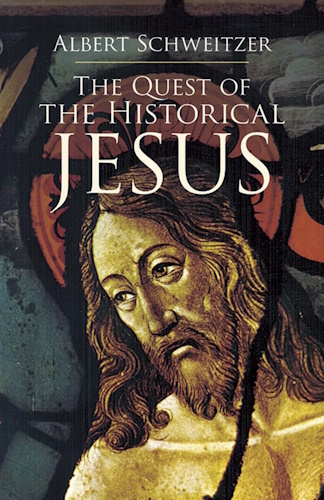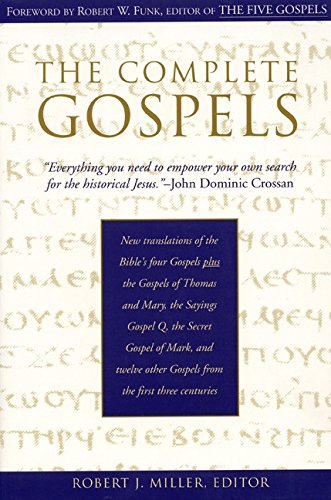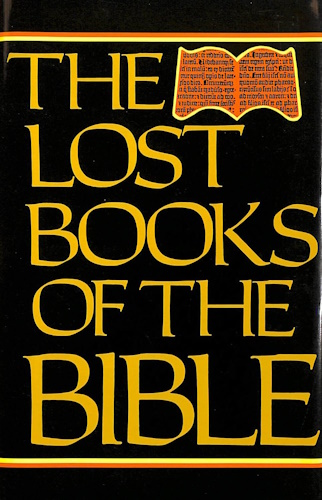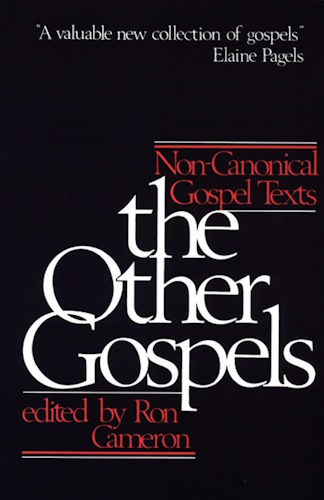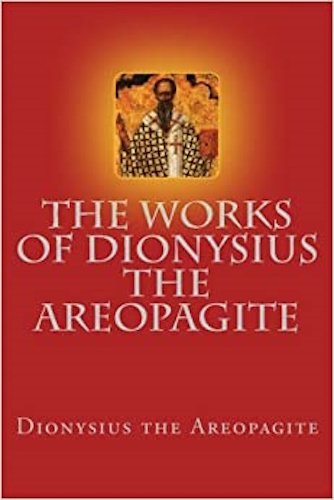
The works of Dionysius the Areopagite
Preface to the online edition
John Parker's translation of the complete works attributed to Dionysius the Areopagite requires some introduction, as he held views which were uncommon in his own day, and do not seem to be held today. I find in the standard handbooks, such as Quasten's Patrology, a consensus of opinion that the works were written in the late 5th or early 6th century. Among other reasons, they allude to theological ideas otherwise unknown before late antiquity. The reader is referred to these handbooks for a discussion of this point. Likewise the Liturgy which he attributes to the same author is in fact an independent production. This was not unknown in Parker's day, which makes his hostility to these ideas rather awkward for a 21st century reader.
It is unfortunate that Parker attempts to reinforce his eccentric views by means of two arguments, neither without merit in the right place, but both misapplied. These approaches are not uncommon among the unwary, and it may be useful to highlight the limits of them.
Firstly he invokes the authority of the Christian church, and suggests that faith in Christ Jesus requires us to accept that these works are genuine. No doubt he was sincere, although the idea is a little hard to understand when plainly stated. Perhaps some idea was present in his mind which does not reach us. But no statement is found in the scriptures that these works are by Dionysius the Areopagite — how could there be? —, nor do the fathers make a dogmatic issue of the matter. It is hard to imagine what other possible source for authority on this matter there might be.
The church has no special revelation on the question of the authenticity of these works; that they were considered authentic by many in the pre-modern era reflects only the lack of facilities to determine authenticity in that period. The unknown author of these works attempted to attribute them to Dionysius the Areopagite — why, it is hard for us now to imagine, although he must have had a reason which seemed valid to him. But their value comes from their spiritual insight, not their author. At all events, to use the name of God to prop up a theory is to violate the second commandment, that we must not misuse the name of God. Misuse of the name of God makes people less willing to listen when it is legitimately invoked.
Secondly he attacks the integrity of the scholars — German scholars — who stated that the text could not be first century.
Now it is certainly true that many scholars of that period practised what the French today call "l'hypercritisme" — a wasteful, destructive process which ultimately placed the purely subjective as the central authority. It is likewise true that some of these same scholars, unwittingly or not, attempted to create a climate in which faithful belief in the scriptures was in fact impossible. In other areas of scholarship, it has been shown that some of those Parker attacks were not ashamed to create a consensus that rubbished the works of Lucian of Samosata for reasons which have been shown to be taken verbatim from non-scholarly anti-semitic publications.1 Such prostitutions of scholarship in the service of racial or religious malice are disgraceful. Scholars should never act in such a way as to poison the well of learning and so force the honest outsider to choose between either a deceitful learning or honest ignorance; still less jeer at their victims, as some have done, for being uneducated.
But on matters of politics and religion, the consensus of scholarship is never more than a reflection of what Dr. Johnson called 'the clamour of the times,' and allowances must be made, then and now. If scholars feel obliged to follow the consensus of their time, it does not mean that they are dishonest when they do. It is not right to throw the baby out with the bath-water and risk a lapse into obscurantism. The failings of the scholars, however severe, do not mean that every conclusion of scholarship in a period of history can be dismissed whenever it is unwelcome. The 19th century was a time of real scholarly progress, even though tainted by unacknowledged bias and revisionism. What Parker should have done was to evaluate the discussion, and to discuss the raw data himself, and weigh it, for and against in an objective manner. Had he done this, even if his conclusions were wrong, his notes would still have had value. Any detail of primary evidence is always of value. But instead he resorted to excuses, which sadly means that his notes were not and are not useful. They have been transcribed, but the reader will need to look elsewhere for real information.
However, it would be unkind to leave matters there. John Parker did the world a considerable service in making all these works available in English. Perhaps he would never have done this but for his conviction that they were apostolic.
Roger Pearse
Ipswich
31st January 2004
Revised 21st January 2005
1 Niklas Holzberg, Lucian and the Germans, Warburg Institute Surveys and Texts XVI (1988) : The Uses of Greek and Latin, (ed. Dionisotti, A.C.; Grafton A and Kraye, Jill), pp.199-209.
![]()
![]()
-
Urantia Book, 44:0.11 - The Celestial Artisans
Never in your long ascendancy will you lose the power to recognize your associates of former existences. Always, as you ascend inward in the scale of life, will you retain the ability to recognize and fraternize with the fellow beings of your previous and lower levels of experience. Each new translation or resurrection will add one more group of spirit beings to your vision range without in the least depriving you of the ability to recognize your friends and fellows of former estates.
-
Princess Bride 1987 Wallace Shawn (Vizzini) and Mandy Patinkin (Inigo Montoya)
Vizzini: HE DIDN'T FALL? INCONCEIVABLE.
Inigo Montoya: You keep using that word. I do not think it means what you think it means. -
Urantia Book, 117:4.14 - The Finite God
And here is mystery: The more closely man approaches God through love, the greater the reality -- actuality -- of that man. The more man withdraws from God, the more nearly he approaches nonreality -- cessation of existence. When man consecrates his will to the doing of the Father's will, when man gives God all that he has, then does God make that man more than he is.
-
Urantia Book, 167:7.4 - The Talk About Angels
"And do you not remember that I said to you once before that, if you had your spiritual eyes anointed, you would then see the heavens opened and behold the angels of God ascending and descending? It is by the ministry of the angels that one world may be kept in touch with other worlds, for have I not repeatedly told you that I have other sheep not of this fold?"
-
Urantia Book, Foreword - 0:12.12 - The Trinities
But we know that there dwells within the human mind a fragment of God, and that there sojourns with the human soul the Spirit of Truth; and we further know that these spirit forces conspire to enable material man to grasp the reality of spiritual values and to comprehend the philosophy of universe meanings. But even more certainly we know that these spirits of the Divine Presence are able to assist man in the spiritual appropriation of all truth contributory to the enhancement of the ever-progressing reality of personal religious experience—God-consciousness.
-
Urantia Book, 1:4.3 - The Mystery Of God
When you are through down here, when your course has been run in temporary form on earth, when your trial trip in the flesh is finished, when the dust that composes the mortal tabernacle "returns to the earth whence it came"; then, it is revealed, the indwelling "Spirit shall return to God who gave it." There sojourns within each moral being of this planet a fragment of God, a part and parcel of divinity. It is not yet yours by right of possession, but it is designedly intended to be one with you if you survive the mortal existence.
-
Urantia Book, 1:4.1 - The Mystery Of God
And the greatest of all the unfathomable mysteries of God is the phenomenon of the divine indwelling of mortal minds. The manner in which the Universal Father sojourns with the creatures of time is the most profound of all universe mysteries; the divine presence in the mind of man is the mystery of mysteries.
-
Urantia Book, 1:4.6 - The Mystery Of God
To every spirit being and to every mortal creature in every sphere and on every world of the universe of universes, the Universal Father reveals all of his gracious and divine self that can be discerned or comprehended by such spirit beings and by such mortal creatures. God is no respecter of persons, either spiritual or material. The divine presence which any child of the universe enjoys at any given moment is limited only by the capacity of such a creature to receive and to discern the spirit actualities of the supermaterial world.
-
Urantia Book, 11:0.1 - The Eternal Isle Of Paradise
Paradise is the eternal center of the universe of universes and the abiding place of the Universal Father, the Eternal Son, the Infinite Spirit, and their divine co-ordinates and associates. This central Isle is the most gigantic organized body of cosmic reality in all the master universe. Paradise is a material sphere as well as a spiritual abode. All of the intelligent creation of the Universal Father is domiciled on material abodes; hence must the absolute controlling center also be material, literal. And again it should be reiterated that spirit things and spiritual beings are real.
-
Urantia Book, 50:6.4 - Planetary Culture
Culture presupposes quality of mind; culture cannot be enhanced unless mind is elevated. Superior intellect will seek a noble culture and find some way to attain such a goal. Inferior minds will spurn the highest culture even when presented to them ready-made.
-
Urantia Book, 54:1.6 - True And False Liberty
True liberty is the associate of genuine self-respect; false liberty is the consort of self-admiration. True liberty is the fruit of self-control; false liberty, the assumption of self-assertion. Self-control leads to altruistic service; self-admiration tends towards the exploitation of others for the selfish aggrandizement of such a mistaken individual as is willing to sacrifice righteous attainment for the sake of possessing unjust power over his fellow beings.
-
Urantia Book, 54:1.9 - True And False Liberty
How dare the self-willed creature encroach upon the rights of his fellows in the name of personal liberty when the Supreme Rulers of the universe stand back in merciful respect for these prerogatives of will and potentials of personality! No being, in the exercise of his supposed personal liberty, has a right to deprive any other being of those privileges of existence conferred by the Creators and duly respected by all their loyal associates, subordinates, and subjects.
-
Urantia Book, 54:1.8 - True And False Liberty
There is no error greater than that species of self-deception which leads intelligent beings to crave the exercise of power over other beings for the purpose of depriving these persons of their natural liberties. The golden rule of human fairness cries out against all such fraud, unfairness, selfishness, and unrighteousness.
